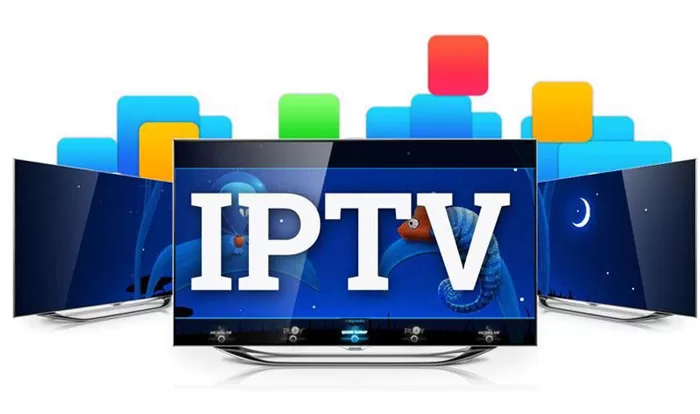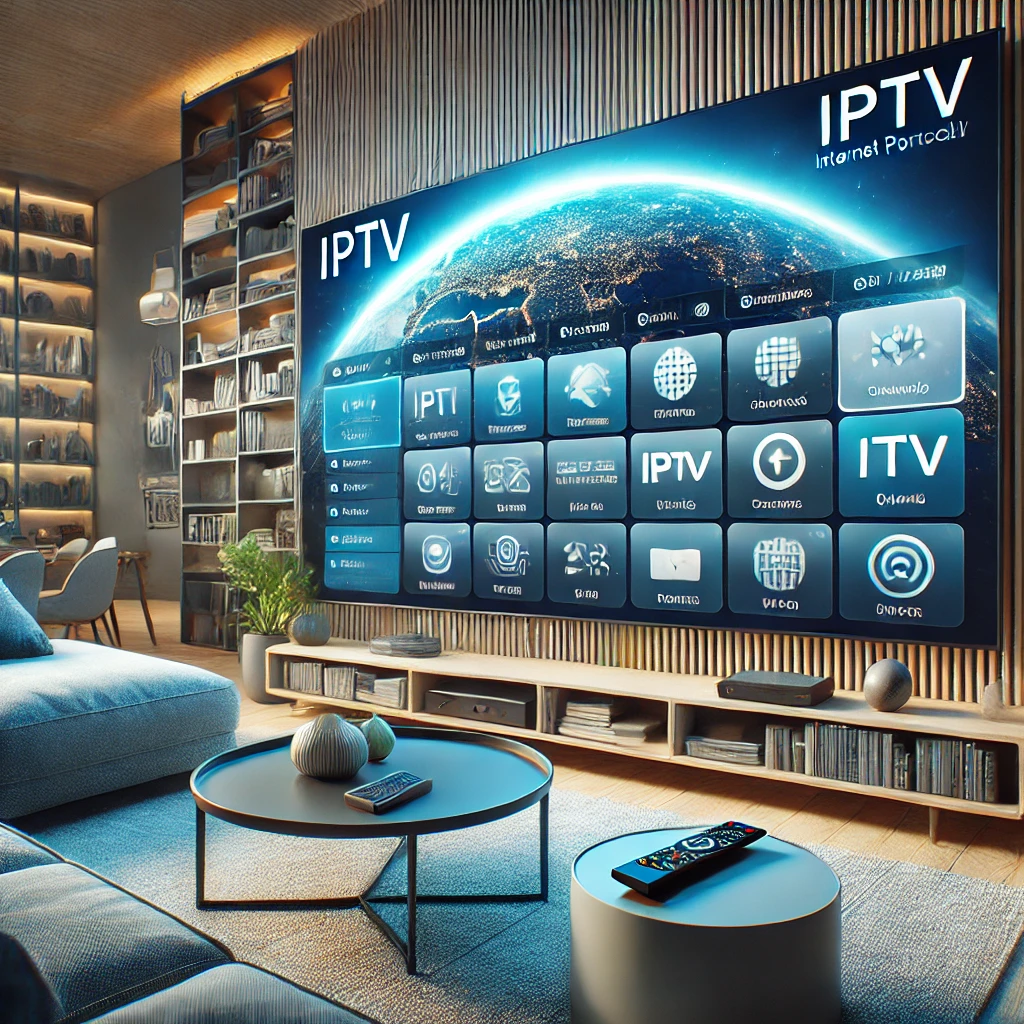IPTV vs. Cable-- Which One is Right for You?
IPTV vs. Cable-- Which One is Right for You?
Blog Article
How IPTV Works: Your Total Guide to Streaming Television Online
IPTV, or Web Procedure Tv, stands for a considerable shift in just how we consume television web content, relocating away from standard broadcasting methods to a more versatile, internet-based method. By making use of a client-server version, IPTV allows users to access a vast variety of programs with digital packets transferred over broadband links.
What Is IPTV?
In the realm of electronic media, IPTV, or Internet Method Television, stands for a transformative approach to supplying television content. Unlike conventional broadcasting methods, which count on satellite, wire, or terrestrial systems, IPTV makes use of web protocol to stream web content directly to gadgets such as tablets, tvs, and smart devices. This innovation makes it possible for users to access a wide array of programming through high-speed web links, supplying adaptability and comfort.
IPTV can be categorized into 3 key service versions: real-time tv, video clip as needed (VOD), and time-shifted television. Live tv enables individuals to enjoy broadcasts in real-time, while VOD offers access to a library of web content that can be seen at the visitor's benefit. Iptv. Time-shifted television enables visitors to enjoy shows at their favored time, even if they originally aired online
Additionally, IPTV frequently incorporates interactive functions, such as electronic program guides and video recording capabilities, improving the checking out experience. As consumers significantly require individualized material and on-demand services, IPTV attracts attention as an engaging option, reshaping the tv landscape and offering unprecedented options for visitors worldwide.
How IPTV Works
The smooth combination of technology and user experience specifies just how IPTV operates. Web Method Tv (IPTV) supplies television programming and various other multimedia material through net protocols, as opposed to typical terrestrial, satellite, or cord styles. This process entails encoding video clip material right into digital packages that are transferred over a broadband internet connection.
IPTV commonly makes use of a client-server design where content is stored on a server and sent out to the individual's gadget-- such as a wise television, computer system, or smart phone-- upon request. The web content shipment is promoted with a set-top box or an application that decodes the incoming information and offers it on the screen. Especially, IPTV operates a online or on-demand basis, enabling users to access a large array of channels and shows.
A critical aspect of IPTV is its dependence on a durable broadband link, which makes sure smooth streaming and top quality video playback. Furthermore, IPTV systems commonly include advanced functions such as electronic program overviews (EPGs), time-shifting, and video-on-demand (VOD), enhancing the watching experience. Overall, IPTV represents a substantial development in exactly how audiences eat television content, leveraging the power of the web for boosted accessibility and flexibility.
Benefits of IPTV
While conventional television approaches frequently limit audience options and availability, IPTV provides many benefits that enhance the total watching experience. One of the key advantages is the comprehensive range of material available. Customers can access a huge library of networks, on-demand shows, and motion pictures, customized to private choices.
Additionally, IPTV sustains numerous tools, permitting individuals to stream web content on mobile phones, tablet computers, clever TVs, and computers. This adaptability guarantees that audiences can watch their preferred programs anytime and anywhere, as long as they have an internet connection. IPTV usually features interactive elements, such as pause, rewind, and document functionalities, offering individuals with better control over their watching practices.
Cost-effectiveness is an additional noteworthy advantage. Several IPTV solutions supply affordable prices compared to traditional cable subscriptions, typically without long-term contracts or surprise charges. This cost makes it simpler for customers to discover various channels and web content without significant economic commitments.
Finally, IPTV commonly flaunts remarkable picture top quality, consisting of high-def and 4K options, enhancing the general watching experience. Collectively, these advantages make IPTV an engaging choice for modern customers seeking versatility, range, and quality in their home entertainment alternatives.
Types of IPTV Services
IPTV solutions can be classified into several unique types, each satisfying various visitor demands and choices. The main groups consist of live tv, on-demand content, and time-shifted IPTV.
Live television IPTV uses real-time streaming of program networks, enabling customers to enjoy programs why not find out more as they air. This service closely looks like traditional cable television, giving access to a variety of networks, consisting of news, sports, and home entertainment.
On-demand IPTV, on the various other hand, allows customers to pick and watch web content at their benefit. This consists of motion pictures, collection, and docudramas that can be streamed whenever the viewer chooses, offering adaptability and customization.
Time-shifted IPTV incorporates aspects of both live and on-demand services. It allows viewers to stop briefly, rewind, or document live programs, providing the capability to control their viewing experience. read this article This service is especially useful for those with active routines, as it suits viewers that may miss out on real-time programs.

Establishing IPTV
Establishing IPTV involves numerous crucial steps to ensure a seamless viewing experience. You need a steady web connection, ideally a broadband solution with a minimum rate of 10 Mbps for common interpretation and at least 25 Mbps for high meaning streaming. This makes sure minimal buffering and a smooth playback.
Following, select an IPTV service company. Research different choices, comparing their network offerings, prices, and customer reviews. You usually get login qualifications and a link to access the IPTV solution. as soon as you've selected a company.
To start streaming, you'll require a compatible tool - Iptv. Many IPTV services can be accessed with Smart Televisions, streaming boxes like Roku or Amazon Fire TV, computer systems, or smart phones. Download and install the matching application or software application for your selected platform
After setup, log in using your credentials and configure any essential setups, such as adult controls or channel choices. Attach your tool to your tv using HDMI, and you're ready to take pleasure in a broad variety of networks and on-demand web content. Consistently check for software program updates to boost efficiency and security, guaranteeing an optimum IPTV experience.
Final Thought

IPTV, or Web Protocol Television, represents a considerable change in how we take in tv content, moving away from typical broadcasting approaches to a much more adaptable, internet-based approach.In the realm of electronic media, IPTV, or Net Method Television, represents a transformative strategy to delivering tv web content.IPTV can be classified right into three primary solution models: online television, video on see it here demand (VOD), and time-shifted tv. Net Procedure Tv (IPTV) supplies tv programs and other multimedia content using internet procedures, instead than standard terrestrial, satellite, or cable styles. On the whole, IPTV stands for a significant advancement in just how audiences consume television content, leveraging the power of the net for boosted access and versatility.
Report this page